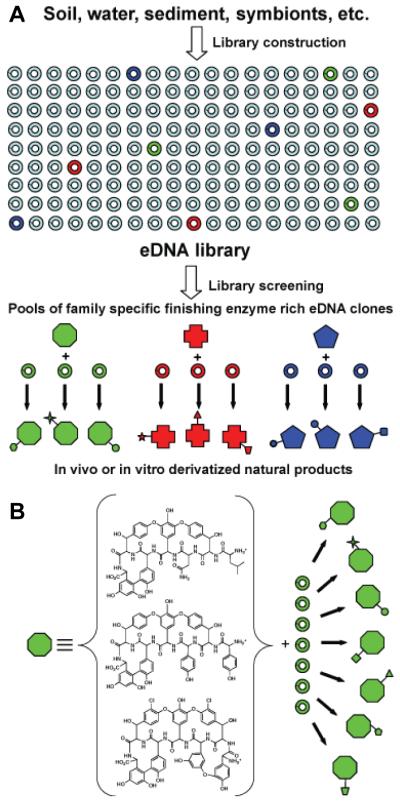Figure 1.
A.) Environmental DNA libraries are predicted to contain thousands of unique biosynthetic gene clusters. Many of these previously inaccessible clusters likely encode the biosynthesis of new members of previously characterized natural product families. Tailoring enzyme-rich eDNA clones from these clusters will encode collections of enzymes that have evolved to specifically interact with a conserved natural product core structure. These enzymes should therefore be useful for generating new collections of unnatural natural products using either in vitro or in vivo biosynthetic strategies. B.) Glycopeptides are derived from a small number of oxidatively cross-linked heptapeptides. In this manuscript we describe the use of eDNA derived glycopeptide tailoring enzymes to generate a family of new glycopeptide congeners.

